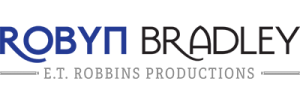Poor Website Strategy: Watch Out for Poop Proliferation
Dear Copy Bitch: What’s the most challenging thing in your industry today?
–Alex, Local High School Senior
Answer: Lately, the most challenging thing has been poop proliferation via websites (I’d use a much more earthy term, but you’re still a babe, Alex <sigh>). In the last month alone, I’ve had three websites dropped on my lap that stunk to high heaven.
On the first PP (poop proliferation), the owner had spent a boatload of cash but hadn’t experienced any returns, basically because SEO (search engine optimization) practices circa 1999 were being used and the copy was oatmeal without the raisins and brown sugar. The second one involved a website that had just been “re-launched.” Sadly, I saw some pics of the old design, and it was better. Also, I think the new navigation hid Jimmy Hoffa’s whereabouts (look it up, Alex), the copy was more twisted than Tiger Woods’s love life, and there were links to sites that had nothing–and I mean NOTHING–to do with the person’s company. The third PP came to me by way of a prospect who emailed me saying her site was just about ready and that she just needed the copy to be “tweaked.” (My Redflaggalator always pings “danger” when such emails land in my inbox.) To me, “tweaked” means “spit and polish.” This site needed a bulldozer.
So what gives? Who’s to blame? Glad you asked. I have plenty o’blame to dole out:
First, web developers: Prospects often start with you (even though they shouldn’t) because they think “web developer” right after they think “I need a website” or “I need to re-launch a website.” You’re doing them a disservice in this day and age if you don’t bring up 1) SEO and 2) copywriting right away. You’re the front line, guys, so you need to battle hard for the likes of me and the SEOs out there. But get this–you do that, and if you have the right resources to refer to–YOU WILL LOOK LIKE A HERO IN THE END (which means having clients who’ll sing your praises and salaam before you).
Second, prospects: I realize your specialty is not web development, copywriting, or SEO. But neither is medicine or cars, and I bet you do a little research before shopping for both of those things, right? Do the same for your website. There’s a ton of information out there (and yes, some of it is poop), but enough of the cream rises to the top in Google searches. You’re going to be investing good money in your site. Do a little homework on what to look for, what the heck SEO means, and why you should care what your copy says.
Third, marketing folks: Make sure your stable is loaded with thoroughbreds (i.e. quality developers, designers, writers, and SEOs).
Fourth, copywriters: Professional, dry copy won’t cut it these days. Your copy needs to tell a story. It needs to engage. And trust me when I say this: you can be creative and professional at the same time.
Fifth, SEOs: Please don’t claim to know SEO unless you really do. That means having built sites that increased conversions (not traffic per se. Anyone can increase traffic to a site. You need to deliver the right traffic that converts into leads/sales). I should probably make this #2, since there are some scam artists out there but even more well-meaning folks who think it’s not hurting anyone to add “SEO” to the list of their services. Confession: I used to do keyword phrase research for clients until I realized it–and all that goes with “it”–is a specialized skill. I refer people to the pros now so that I can focus on the copy.
Aren’t you glad you asked, Alex? (There’ll be a quiz.)
